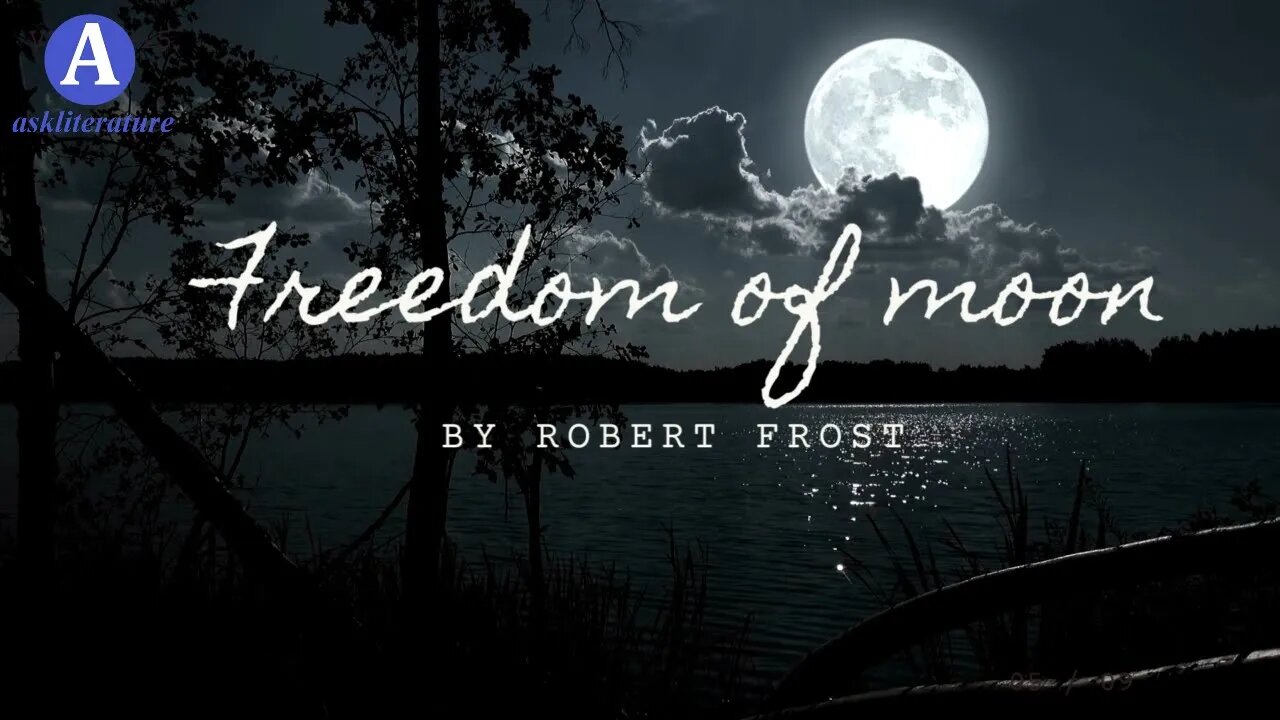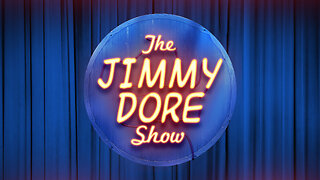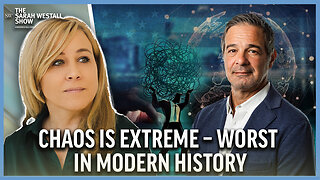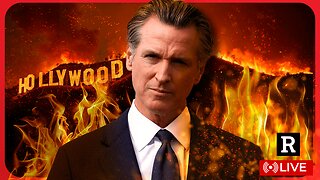Premium Only Content

The Freedom of the Moon by Robert Frost Analysis
"The Freedom of the Moon" by Robert Frost is a short and contemplative poem that explores the contrast between two celestial bodies: the Earth and the Moon. The poem begins by describing the Moon as "immaculate," suggesting its purity and freedom from the turmoil and imperfections of earthly life. The Moon seems to be an ethereal being that can observe the Earth from a distance.
The speaker compares the Moon's tranquility to the Earth's state of chaos, where "the world has burned the wires." This line may allude to human technological advancements and their negative consequences. While the Moon appears to be free and untethered, the Earth is entangled in its own creations and desires.
In the final lines, the poem suggests that the Moon's freedom might be an illusion, as it is "full of our own emptiness." This paradoxical statement hints at the Moon's symbolic connection to human longing and desire, making it just as entangled as the Earth, albeit in a different way.
Themes.
Freedom and Confinement. The poem explores the idea of freedom, contrasting the perceived freedom of the Moon with the confinement and entanglement of the Earth. However, it also suggests that both entities are bound in some form of limitation, presenting a nuanced perspective on freedom.
Nature versus Civilization. The poem juxtaposes the natural purity of the Moon with the complexities of human civilization on Earth, highlighting the tensions between the pristine and the artificial.
Longing and Desire. The Moon symbolizes human longing and desire, suggesting that even the celestial body seemingly untethered by human struggles carries its own form of emptiness and attachment.
Symbols.
The Moon symbolizes freedom, purity, and distance from earthly concerns. It also represents human longing and desire.
The Earth symbolizes the world of human civilization, its chaos, and the consequences of human actions and advancements.
Wires represents the technological entanglements of the modern world, possibly symbolizing the negative impact of human inventions and industrialization.
Literary Devices.
Imagery. The poem employs vivid imagery to contrast the Moon's serenity with the chaos of the Earth and its technological consequences.
Metaphor. The Moon serves as a metaphor for various themes, including freedom, purity, and human longing.
Paradox. The line "full of our own emptiness" presents a paradox, suggesting that the Moon's freedom is an illusion and that it, too, is affected by human emotions and desires.
-
 LIVE
LIVE
Glenn Greenwald
2 hours agoWith Biden Out, U.S. Finally Admits Harms of His Israel / Gaza Policy; Biden Pays Homage To George W. Bush; Insane Women’s Tennis Scandal: An “Abusive” Coach | SYSTEM UPDATE #388
1,475 watching -

Donald Trump Jr.
4 hours agoOne Week Until Inauguration, Live with Rep Anna Paulina Luna & Sen Tommy Tuberville
36.6K59 -
 LIVE
LIVE
The Jimmy Dore Show
1 hour agoConfronting LIES About January 6th! LA Fire Chief KNEW About Empty Reservoirs! w/ Greg Foreman
6,902 watching -
 LIVE
LIVE
Dr Disrespect
7 hours ago🔴LIVE - DR DISRESPECT - MARVEL RIVALS - TOP 500 IN THE WORLD
2,790 watching -
 LIVE
LIVE
LFA TV
1 day agoThe Soon-Coming Social Millennium | TRUMPET DAILY 1.13.25 7pm
350 watching -
 LIVE
LIVE
Sarah Westall
46 minutes agoWeaponized Chaos – Worst in Modern History; Changing Geopolitical Landscape w/ Andy Schectman
181 watching -
 LIVE
LIVE
SpartakusLIVE
1 hour ago#1 Hacker/Scammer PLUNGES into CRYPTO || !crypto !spartacoin
238 watching -
 53:15
53:15
Kimberly Guilfoyle
4 hours agoCalifornia Residents Demand Answers, Live with Rep Vince Fong, Mike Davis, and Paul Peterson | Ep. 188
30.4K40 -
 1:49:51
1:49:51
Redacted News
4 hours agoEMERGENCY! 10 MILLION UNDER FIRE WARNING & 100 MPH WINDS, NEWSOM UNVEILS CALIFORNIA 2.0 PLAN
108K129 -
 49:33
49:33
Candace Show Podcast
3 hours agoI Respond To Mr. And Mr. Macron | Candace Ep 131
73.3K174